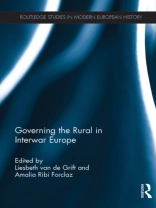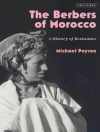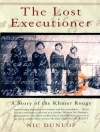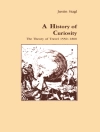This book examines how rural Europe as a hybrid social and natural environment emerged as a key site of local, national and international governance in the interwar years. The post-war need to secure and intensify food production, to protect contested border areas, to improve rural infrastructure and the economic viability of rural regions and to politically integrate rural populations, gave rise to a variety of schemes aimed at modernizing agriculture and remaking rural society. The volume examines discourses, institutions and practices of rural governance from a transnational perspective, revealing striking commonalities across national and political boundaries. From the village town hall to the headquarters of international organizations, local authorities, government officials and politicians, scientific experts and farmers engaged in debates about the social, political and economic future of rural communities. They sought to respond to both real and imagined concerns over poverty and decline, backwardness and insufficient control, by conceptualizing planning and engineering models that would help foster an ideal rural community and develop an efficient agricultural sector. By examining some of these local, national and international schemes and policies, this volume highlights the hitherto under-researched interaction between policymakers, experts and rural inhabitants in the European countryside of the 1920s and ’30s.
Amalia Forclaz & Liesbeth van de Grift
Governing the Rural in Interwar Europe [PDF ebook]
Governing the Rural in Interwar Europe [PDF ebook]
购买此电子书可免费获赠一本!
语言 英语 ● 格式 PDF ● 网页 310 ● ISBN 9781315525600 ● 编辑 Amalia Forclaz & Liesbeth van de Grift ● 出版者 Taylor and Francis ● 发布时间 2017 ● 下载 3 时 ● 货币 EUR ● ID 5307016 ● 复制保护 Adobe DRM
需要具备DRM功能的电子书阅读器












